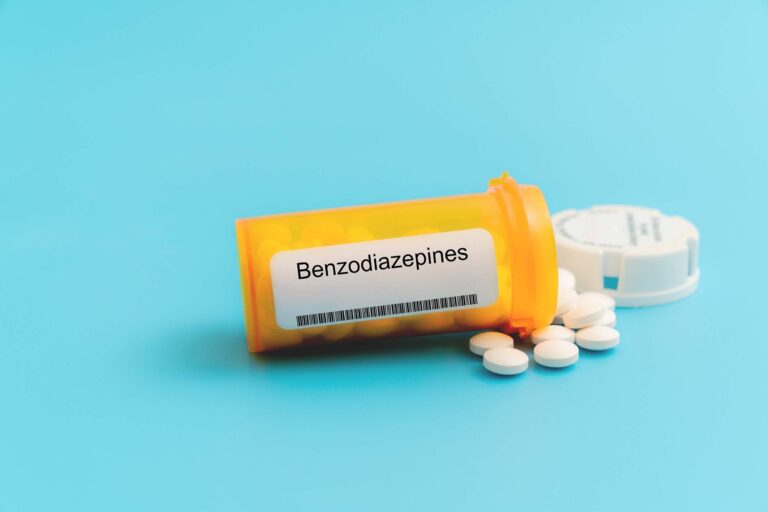Cocaine, often in the spotlight for its high risk of abuse and addiction, is a potent stimulant. It’s known for its rapid, intense effects, which boost alertness and generate a fleeting sense of euphoria and well-being. This temporary high can trap users in a cycle of repeated consumption.
If cocaine has become a problem in you or a loved one’s life and you want to tackle cocaine addiction, it’s essential to start with the concept of tolerance. In this article, we will explain what cocaine tolerance means, what it looks like, and what long-term effects it can have. We will also let you know how you can move toward the healing path of recovery if you have developed cocaine tolerance.

What is Cocaine Tolerance?
Cocaine tolerance is when the body becomes used to the effects of cocaine at a certain level. Users may have gotten high off of a small amount of cocaine when they first started but gradually needed to increase their doses to feel the same effects. This increase isn’t just risky health-wise, but it also quickens the slide into dependence and addiction. It’s a tricky cycle where the chase for euphoria can lead down a risky and dangerous path.
Read more: Crack Withdrawal: What To Expect & How To Cope

What Are the Risks Of Cocaine Tolerance?
Building up a tolerance to cocaine leads to needing more of it for the same high. This escalation brings serious health risks into play:
- Heart Health: Taking more cocaine puts extra pressure on your heart and raises the chances of heart attacks and strokes.
- Blood Pressure: Regular use of larger cocaine amounts can keep your blood pressure high, which increases heart disease risks.
- Mental Well-being: Growing tolerance often worsens mental health. This enhances feelings of anxiety, paranoia, and unstable moods.
- Addiction Deepening: The more your body adapts to cocaine, the harder quitting becomes, which leads to a deep-rooted addiction.
- Overdose Danger: This is a big worry. Higher doses, especially when taken often, can lead to life-threatening overdoses.
- Brain Health: Long-term cocaine use can mess with your brain, affecting memory, thinking skills, and focus.
- Social Life: As tolerance builds, it can change the way you act, straining relationships, work life, and social interactions.
Cocaine tolerance isn’t just about the physical effects; it’s also about seeing how it changes behavior and decision-making. When cocaine becomes a central focus, everything else – from personal responsibilities to legal boundaries – can take a back seat.

Recognizing Signs of Cocaine Tolerance
It’s important to catch the signs of increasing tolerance to cocaine early. Here’s what to look out for:
- Always needing more: You might find yourself using more cocaine to get the same high you used to.
- Effects have less impact: The usual amount doesn’t give you that strong buzz or sharpness.
- Using more often: There’s a tendency to use cocaine more frequently to keep feeling its effects.
- Withdrawal blues: Not using cocaine can leave you feeling tired, down, or even restless.
- Cocaine runs your life: A lot of your time goes into getting, using, or recovering from cocaine.
Also, think about how your cocaine use affects your everyday life and feelings when you’re not using it. Are you relying on it to feel mentally or emotionally okay? This awareness is key to realizing it might be time to seek help and make a change.
Managing Cocaine Tolerance and Seeking Professional Help
Getting your cocaine tolerance or even cocaine addiction under control is about more than just cutting back cocaine use – it’s about taking back control of your whole life. Here’s how to start:
- Admit you need help. It’s okay to acknowledge that cocaine tolerance indicates a deeper issue.
- Look up various recovery paths. You’ve got choices like therapy, inpatient, and outpatient programs.
- Get in touch with experts. Places like Asheville Detox Center offer advice and support.
- Have a professional evaluate your situation. This helps in crafting a treatment plan that’s right for you.
- Therapy, whether one-on-one or in a group, can help you understand and manage the reasons behind your cocaine use.
- Build a circle of support – friends, family, or groups who get what you’re going through.
- Start incorporating good habits like exercise and balanced eating into your daily life.
- Remember, recovery is ongoing. Stay connected with your support and health professionals, even after initial treatment.
Seeking help is about freeing yourself, reducing the danger of overdose, and avoiding lasting health issues. With dedication and the right support, you can regain control and start a new, healthier chapter.
Read more: Cocaine Detox: Importance, Process, & 5 Support Systems
Cocaine Detox At Asheville Detox Center
At Asheville Detox Center, we offer a range of treatments, starting with our medically supervised detox. This first step is key to handle withdrawal safely and get you stable. We blend medical expertise with a comforting touch to create a truly supportive space for healing. But it doesn’t stop after detox. Following detox, we shift focus to aftercare and medication-assisted treatment (MAT). This phase is all about dealing with both the physical and mental sides of cocaine tolerance and cocaine addiction. Our team, skilled in medical and therapeutic techniques, works towards providing you the best shot at a lasting recovery.
Cocaine Addiction Treatment In Asheville, NC
Dealing with cocaine tolerance is a major move in your recovery journey. You’ll find a welcoming and professional setting for this important phase at Asheville Detox Center. Tailored care and a range of treatment options mean we’re here for you every step of the way. Are you ready to start, or just curious? Call, email, or fill out a form for more details on our programs, resources, and services. Once you’re finished with treatment, our case management team can help you transition into the next level of treatment at one of our partnered residential, PHP, or IOP treatment centers.







